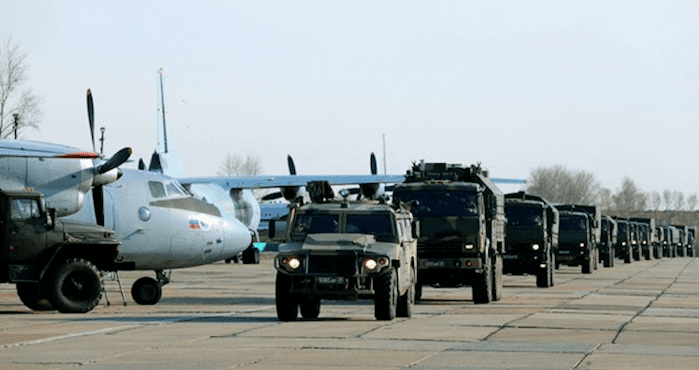In a blog post titled “Redeployment” the popular blogger Anatoly Nesmiyan aka El-Murid takes note of reports that Russia is redeploying some of its forces in Syria to Ukraine to participate in the fighting. According to Nesmiyan, the reports if corroborated prove that Russia has lost many officers in its “non-war” in Ukraine. This compounds the effect of the reforms of former defense minister Anatoly Serdyukov, who sought to reform the army after Russia’s lackluster performance in the war with Georgia in 2008. Serdyukov believed that the Russian army had to downsize in quantity and upgrade the quality of the remaining servicemen. As the Soviet and then Russian army was believed to be over-officered the reforms severely cut down the number of officers and closed several officer-training schools. Russia did not anticipate that it would be fighting a conventional land war. Now Russia must cannibalize its forces for officers and Syria is one of the obvious reservoirs. Nesmiyan’s post follows below:[1]
Redeployment of Russian troops from Syria (Source: Moscowtimes.ru)
“Two days ago, The Moscow Times newspaper (which is banned in Russia) reported that at least part of the Russian military contingent had been moved from Syria.[2] According to the source, the troops hurriedly transfer their bases to Hezbollah and pro-Iranian bandit forces and left for Russia. This information immediately began to be replicated by Ukrainian resources. Naturally, there is no official information on this issue.
“It’s hard to say right off the bat whether this intel is true or not. Syria is important to the [Russian] regime primarily because of the bases in Khmeimim and Tartus, via which the Kremlin’s aggressive actions in Africa receive logistical support. These bases are responsible for supplying the regime’s illegal armed groups in almost a dozen countries. So Khmeimim and Tartus will definitely be held until the end. The situation with the other territories is less clear. In any case, the latter are not critical.
“A significant part of the Russian Armed Forces contingent in Syria is made up of officers, which may serve as an indirect basis for such a decision. It should be understood that in modern Russia the officer deficit was predetermined by the [former Defense Minister Anatoly]Serdyukov reforms, which optimized [the common term used for reforms that offloaded “unprofitable” state assets in various areas (education, medicine, army)]the number of servicemen primarily through the complete destruction of officer training institutions.
“The new concept of the armed forces development assumed that mobilization is ruled out, thus training an excess number of officers is an unproductive budgetary expenditure. In the new format, the armed forces were to be utilized exclusively in local short-term conflicts, or in punitive expeditions like the Syrian one. The “there are none of our troops there” tactic, which the regime actively followed in Ukraine, Libya, Syria, the Central African Republic, and Mozambique, also fitted into this concept. Locally mercenaries, led by officers seconded from the armed forces were to serve as the “cannon fodder” under such a concept.
“Such a concept doesn’t work for full-fledged (although localized) combat operations with a conventional enemy. First of all, there is no one that can replenish the attrition among command staff. This by the way is one of the most important reasons why it is impossible to carry out mobilization in Russia. Because there are simply no commanders. The only option for possible mobilization is the reinforcement of the existing units, but this won’t solve the problem of the dearth of commanding officers. New military units cannot be built from the scratch in Putin’s and Serdyukov’s army. To gather a crowd and arm it with machine guns does not mean forming a unit.
“Provided the Moscow Times article is based on reliable information (I repeat: it is impossible to verify it immediately), it means a critical loss of officer personnel in more than two months of “non-war.” That is why the authorities have to “pull out” commanders from everywhere in order to somehow plug the holes that have appeared. Obviously, this doesn’t solve the problem because in a month or two the problem of command staff shortages will resurface.”
[1] El-Murid.livejournal.com, May 8, 2022.
[2] Moscowtimes.ru, May 6, 2022.

